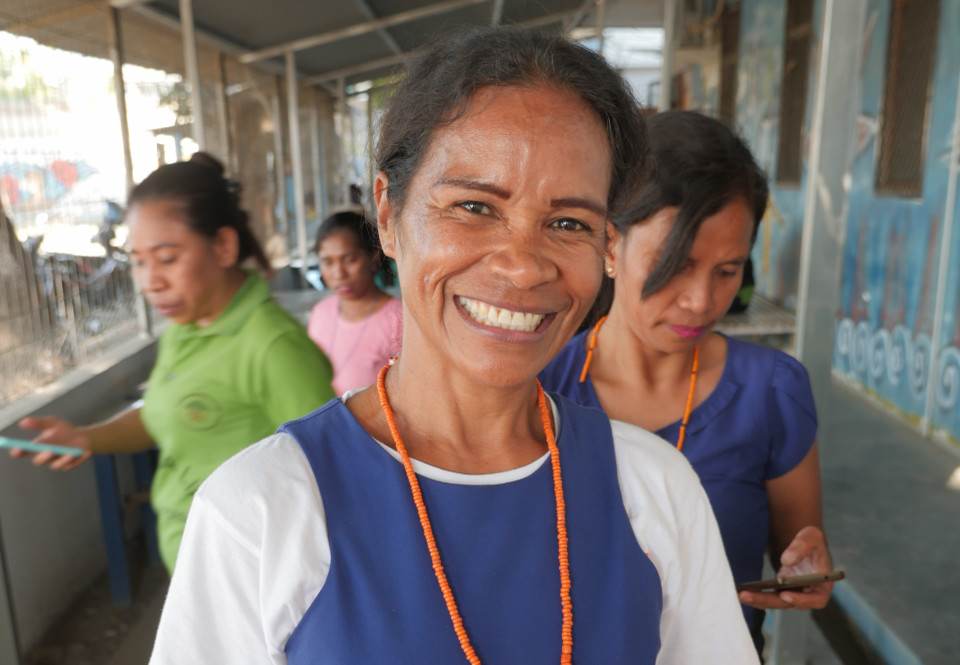The power of community advocacy and healing for women survivors of violence
Date:
Olinda Alves da Silva, 44 is part of a community of women who are pioneering a better way to provide care and support healing for women survivors of the past conflict in Timor-Leste (1975-1999), while working to prevent further violence against women.

![]()
Life was very hard during the occupation. At seven years old, I was separated from my parents and put into an orphanage. In 1980, my father, a resistance fighter, was killed, and then my mother also died as a result of the physical and sexual abuse she received from the Indonesian military.
I want everyone to know what happened to my parents and to other Timorese people, so that violence doesn’t happen again. I got involved with a local NGO called Asosiasaun Chega! ba Ita (Enough violence for us) in 2018 – 2019 as part of a project supported by UN Women. I am their focal point and organize workshops for women survivors in my village, which provides a safe space to share past experiences during the conflict.
One of the main challenges for women survivors is that they still face multiple inequalities such as lack of employment, housing, recognition for their efforts during the conflict, and opportunities to move forward. The work I do connected me with different partners and gave me different skills and confidence which I am now using to negotiate for further recognition and assistance for these women in the community.
Women who are survivors are still suffering and need help to seek reparation, to improve existing inequalities and access to basic services. They need someone to advocate for them to achieve these things and this is one of the main reasons I do this work. We help each other out. When a survivor or a member of her family dies, and they cannot afford a coffin, I help them to find the funds. We organize walks in our city and talk to students, so that our story of the past is not lost.”